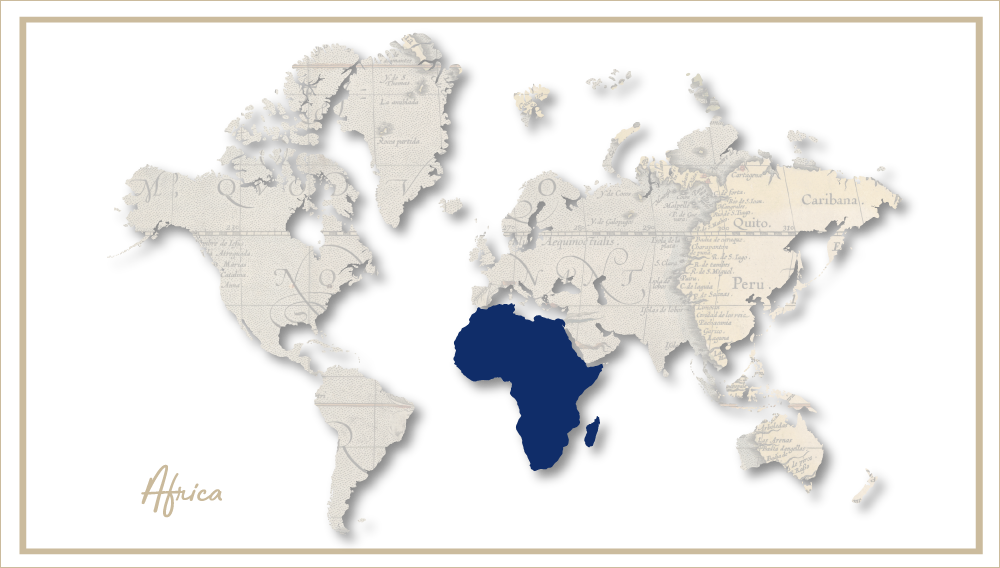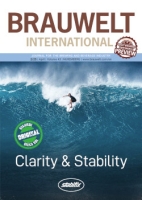This article describes the evaluation of a system for preventing scale formation in the hot water zone of washers, based on industrial trials at Apollinaris & Schweppes GmbH, Staatlicher Mineralbrunnen Bad Brückenau, Siegsdorfer Petrusquelle, Schlossbraue
"The principle of all things is water; all comes from water and to water all returns"
Thales of Miletus (625 - 545 BC)
In 1995, 92% of the world population still had sufficient drinking water whereas 3% suffered from lack of water (< 1000 m3 of fresh water/inhabitant and year) and 5 % of the world population experienced a scarcity of water (< 1700 m3 of fresh water/inhabitant and year) (1). Forecasts for 2050 indicate that, as a result of population growth, only 58 % of the world population will have sufficient fresh water whereas 18 % will suffer from a lack of water and 24 % from a scarcity of water. The Federal Republic of Germany is currently still one of the countries where sufficient drinking water is generally available.g.g. 2), the Federal Republic, at DM 3.41 to DM 7.
The following contribution gives some suggestions for evaluating and for balancing a drinking water analysis. number of components are dissolved in drinking water. In quantity terms, the ions of salts dominate. Depending on the degree of mineralisation of the water, the total dissolved quantity fluctuates over a wide range, oftentimes between 50 and 2000 mg/l. ...

Later this year Namibia Breweries will start brewing Guinness in Namibia in an effort to reduce the brand’s cost in South Africa.
The pricing of Guinness and its sister brand Kilkenny has been driven high by the depreciation of the South African rand against the Irish punt which has started to hamper sales.
Presently, the brand is imported from Ireland and distributed by Namibia Breweries’ South African subsidiary. Guinness UDV SA markets the brand in South Africa. The brewer has already installed equipment required to brew Guinness in Namibia. Namibia Breweries took over distribution of Guinness and Kilkenny in 1999 after Guinness ended its contract with South African Breweries..
In November 2000, the mineral water bottlers Adelholzener Alpenquellen started operation with the first and currently most sophisticated line from Krones for cold-aseptic filling of still water, fruit juice and mixed beverages in non-refillable PET bottles. This prototype line, newly developed in close co-operation between Adelholzen and Krones, supports the company’s philosophy of being satisfied with nothing less than optimum quality, and using no preservatives whatsoever in its bottling operations.
This was the only way to implement the planned launch of non-refillable PET bottles in the still water and soft-drink segment of the market. At first, it was the nuns themselves who bottled the water laboriously by hand..
Operating safety of waste water treatment plants can be endangered both by external operational and weather-related factors as well as by structural or mechanical-electrical failures within the plant itself.
A complete plant for sterilisation and deaeration of water as well as for measurement and control of original gravity, alcohol concentration and CO2 level in the finished beer is described. The system is suitable both for use in high-gravity processes as well as for optimisation of original gravity so as to be able to take full advantage of the applicable beer tax category.
HGB is a concise expression for adjustment of the desired original gravity by means of adding degassed water to high gravity beer. The original designation HGB stems from production of worts above 13 %. There used to be no distinction between worts over 12 % (HG high gravity worts) and 18 % (VHG very high gravity worts) (1). The modified technology is also called HGP (high gravity processing) (2). This kind of brewing process originated in the United States and from there it spread around the world. Today, this technique is a procedure used everywhere for the economic production of beer, making optimum use of existing plant capacities.
Almost all big brewers use these techniques which are an integral part of the process. Then the amount of water to be added can be calculated....
The pros and cons of the ethylenediamine tetraacetic acid (EDTA) complexing agent has been discussed for many years. In view of its effectiveness, the substance is used widely, also in cleaning agents for the beverage industry. Ecological reservations have cast doubt on its use in water-sensitive areas. The Industrial Association Hygiene and Surface Protection (IHO), the professional association of manufacturers of commercial detergents and cleaning agents, comments on environmental aspects and areas of application of EDTA in this article.
Ethylenediamine tetraacetic acid is an active component in cleaning agents on account of its capability to form complexes, i.e. strong bonds with heavy metals, and bind water hardness.
....
At the last EBC Congress in Cannes, Meura had the opportunity to present their pilot plant results on a new technology of malt grinding. For developing this technology two specific results were aimed at: better quality through oxygen-free grinding under water at mashing temperature and secondly, better productivity thanks to extract yield equal to (or even higher than) laboratory yield and productivity rates higher than 12 brews a day.
This paper outlines the scientific background and describes a new plant for fine grinding of malt in water.
Trans-2-nonenal is considered to be the major aldehyde involved in stale flavour in beer.
De Buck also indicated that there is a linear relationship between the trans-2-nonenal potential and the flavour staling.
....
Ever since mankind has begun to draw off water, especially because of its composition and purity from underground reservoirs, per-capita consumption has increased steadily. Draw rates are increasing such that a shortage of our life’s most important basis is becoming evident. This contribution describes a design concept and the execution of a filter plant.
Increasingly shorter trickling times, greater pumped volumes and not least partly insufficient protection of well heads and water reserves, associated with aged and corroding communal distribution lines, lead to increasingly stringent requirements for quality assurance of our lifeline. Various processes for quality assurance of the most important raw material for breweries, soft drinks and food industries are in place.
....


